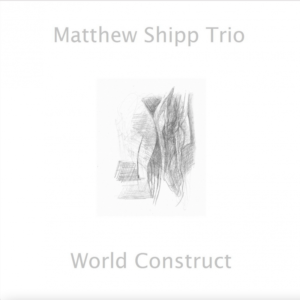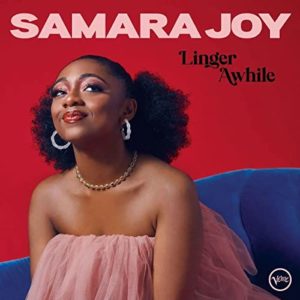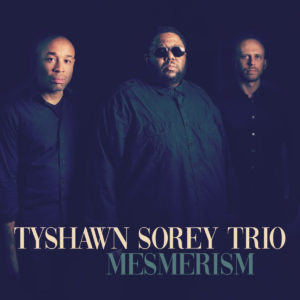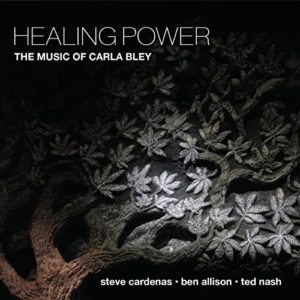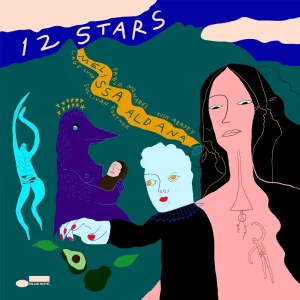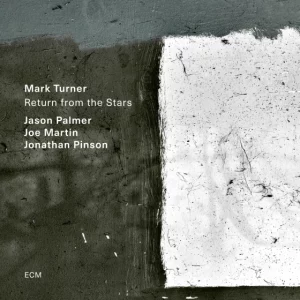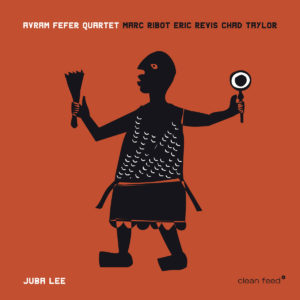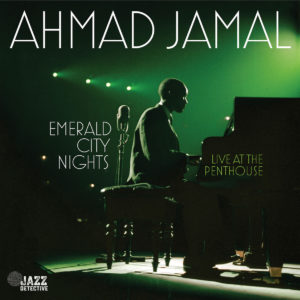Not one of the better years for recorded jazz, I’ve decided, though what’s listed below is still, as Spencer Tracy once put it, “cherce.” I’ve spent more than three decades insisting that jazz’s yearly yield of recordings showed that its energy and quality was surging despite the relative and not-so-benign neglect of what used to be called the music industry. But I now think we may have finally hit, if not a wall, maybe a bump, or a dip in the road.
Then again, I wasn’t expecting much from this past year since everybody and everything is still recovering from the last couple years of lockdown and loathing. With a couple of exceptions, most of what I heard last year sounded tentative and restrained, as if jazz were feeling its way through the emotional wreckage of the previous six years (or so) to get its bearings; just like you, me, and everybody we know.
Which I wouldn’t have minded so much if 2022 hadn’t also been Charles Mingus’s centennial, reminding me of a time when jazz was ALL affirmation, thrust, and drive. Even the best jazz music I heard on record this year seemed to make its way hesitantly, even diffidently from the edges of space while Mingus, the prototype of whatever’s meant by “force of nature,” went all out, coming at and for you, whether you were amenable to what he was laying down or not. When reacquainting myself with the polyphonic momentum and high drama of “Black Saint and the Sinner Lady,” “Pithecanthropus Erectus,” “Fables of Faubus” and other Mingus landmarks, I found myself wandering further back to Fletcher Henderson’s deco-dynamics of the twenties and thirties and wondering where all that hotfoot urgency and furious invention had gone – and whether it’ll every come back.
Why wonder? The founder of Rolling Stone was quoted this past year saying rock-and-roll had declined so much that it’s never coming back. “It’ll end up,” Jann Wenner said, “like jazz.” Burn! From wherever he’s calling home, Wenner likely hasn’t even heard of Cecile McLorin Salvant or Maria Schneider or (maybe) even Robert Glasper, no matter how much their work engages the present moment. What I suppose he’s really saying is that rock-and-roll, as with jazz, blues, or even, I’ve been hearing lately, hip-hop no longer own or compel the present moment as they once did. (What does? Podcasts? Hulu? The noises in Elon Musk’s head?)
But as much as it hurts to admit it, Wenner’s right. The dual queens of pop, Beyoncé Knowles and Taylor Swift, now preside over the music zeitgeist without much of a challenge. We could do worse. We could do better. In the meantime, we tend to our gardens and fend off negativity. And it’s hard not to be negative given the losses in the past year of people like Creed Taylor, Ronnie Cuber, Sue Mingus, Ramsey Lewis, jamie branch, Joey De Francesco, Ron Miles, Charnett Moffett, Grachan Moncur III, and Pharoah Sanders. When one or more of them leave, we cast about for replacements until we accept that there are no replacements for any of them. There’s just us, the originals who remain, and those whose names we don’t know yet, but can’t wait to get into the action. Zeitgeist or no zeitgeist, these folks go on, no matter how messed up or constricted the rest of the world is.
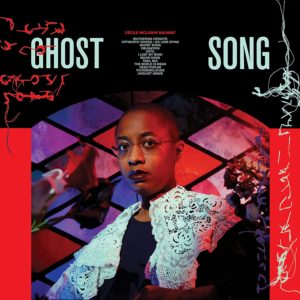
1.) Cecile McLorin Salvant, Ghost Song (Nonesuch) – We have a right to expect our best artists to make deep, hard connections to the present from whatever angles they choose. This latest act of insurgency from the finest, shrewdest, most adventurous jazz vocalist of her generation didn’t only connect (as it were); it seemed to be inventing the emotional whirlwind of the entire year as it spun wildly into being, anticipating hope and dread at every shaded turn. Remember that song from The Wizard of Oz when Dorothy, Toto, and their shabby retinue have escaped the toxic poppy fields and are skipping towards the gates of Oz? The ditty that goes: “You’re out of the woods/ You’re out of the dark/You’re out of the niiight…” Tell me something like that didn’t pop into your head the morning after this year’s midterms and in exactly the wifty, pop-eyed, kewpie-doll fashion Salvant’s rendition does here before it gives way to Gregory Porter’s more ruminative “No Love Dying,” whose lyrics are far less credulous towards life’s possibilities, but instead encourage abiding faith in love’s persistence however many “broken wings” materialize in rebuttal. Salvant has from the beginning of her meteoric rise to the pinnacle of her profession displayed rapier-like smarts towards relevance and applicability of song, which comes through in blending not just Porter and Harold Arlen, but also Kurt Weill (“The World is Mean”), and Sting (“Until”) along with orchestrating, in “Dead Poplar,” a letter Alfred Stieglitz once wrote to Georgia O’Keefe. She’s not just showing off her erudition…OK, maybe she is, a little. But this formidable sound collage is enhanced by her own compositions, some of which play along the edges of introspective passion, if there is such a paradox. (From “Obligation”: “Promises Lead to Resentment/ I could Love You if only it would stop your weeping, and start your smiling/ But is that Love?” Your move, Taylor Swift.) She closes her recital, unexpectedly, yet impeccably, with the old English folk ballad, “Unquiet Grave,” which at once recognizes the pain and depth of loss, while imploring for the necessity of letting go and moving on. It all sounds a lot like what we’ve been thinking lately – and a lot more like what we’ll be feeling forever after.
2.) Matthew Shipp Trio, World Construct (ESP) – This version of Shipp’s trio – with bassist Michael Bisio and drummer Newman Taylor Baker – has lasted the longest and the fruitfulness of their collaboration becomes wildly, emphatically apparent on their fourth – and best – album. Shipp’s virtuosity on the piano is as spiky and as spiny as ever. There’s even a track titled “Spine,” followed by one called “Jazz Posture” and both evoke painstaking, but undaunted ascent to full upright position and forward motion. What compels your attention throughout is the easy-does-it flow of layered motifs between Shipp, Bisio, and Baker. On “Beyond Understanding,” a whisper from the drummer ‘s hi-hat can stir both the bassist and the pianist to reply with their own streams of color and insinuation. Their shared comfort level is infectious, and you get swept up in the momentum of, say, “Abandoned” in the same way you’re riveted by a Hitchcock set piece. The climactic title track, also the album’s longest, has this unit coalescing into one shape-shifting organism insisting on the prerogative to change minds and break through the clouds without holding back or hugging corners. Shipp sustains the spirit of go-for-broke assertion in jazz music and, especially with this unit, has made his progressive vision more accessible without compromise. More than ever, you can’t wait for their next one, and with these guys, you don’t have to wait very long.
3.) Ryan Keberle’s Collectiv Do Brazil, Sonhos Da Esquina (Alternate Side) – In a handful of innovative ensembles, Keberle has transformed the slide trombone into a nimble, dulcet, near-crystalline singing voice, perfectly suited for, among other things, Brazilian music. The story behind this gorgeous panoply of sonhos (dreams) begins in 2017 when Keberle took time off from directing the jazz studies program at Hunter College to travel to Brazil and get cozy with the nation’s tradition of soft beats and intricate melodies. In the process, he hooked up with the working trio of pianist Felipe Silveira, bassist Thiago Alves and drummer Paulinho Vincente, finding communion and transcendence in live performances throughout Sao Paulo. They recorded these tracks about a year later and you can feel both the air-tight seamlessness of their interaction and how each of them stands out in their soloing. The compositions of both Milton Nascimento (“Cio Da Terra,” “Clube Da Esquina”) and Tonino Horta (“Aqui, Oh!,” “Francisca”) dominate the proceedings and are given fresh reinvention through arrangements by Keberle and Silveira. The intricacy of Brazilian song tradition infuses Keberle’s originals, including the bold, sinuous title track and “Carbon Neutral,” as haunting (ominous?) an anthem for confronting climate change as one can imagine.
4.) Samara Joy, Linger Awhile (Verve) – Working within tradition still delivers decisive shocks to the system. Case in point: this Bronx-born, 22-year-old prodigy whose second album delivers on the bright promise of the first with startling dividends. Her prize-winning vocal chops show both exuberance and intelligence in near-perfect equipoise and their lively reanimation of familiar standards makes those warhorses seem frisky, airy, and ripe for discovery by a new century of listeners. She unravels the unadulterated melodrama of “Guess Who I Saw Today” with plenty of glissando flourishes. But by keeping clear of cocktail lounge mannerisms and gratuitous histrionics, she lets the story tell itself and sticks the landing without wobble or excess. She also knows her way around vocalese and the lyrics she applies to Fats Navarro’s “Nostalgia” (which could have been the title track) displays her own adroitness with delivering an absorbing narrative all her own. If you think you’ve heard enough versions to last a lifetime of “Misty,” “Round Midnight,” and “Someone to Watch Over Me,” you’ll reconsider, especially after hearing her duet with guitarist Pasquale Grasso on the Gershwin tune. The greats of an earlier time, from Ella to Sarah to Carmen to Dinah, are evoked, but she arrives in the here-and-now in early triumph as her own person with rich tones and inventive agility belonging to nobody else but her. Of all the sundry delights that come with this album, the most tantalizing is the prospect of watching her already considerable talent grow with greater refinement, broader resources, and more formidable challenges.
5.) Marta Sanchez, SAAM (Spanish American Art Museum) (Whirlwind) – At once forbidding and enrapturing, Sanchez’s music confronts the sense of loss endemic (so to speak) to these times with grounded resolve and melancholy rumination. From the opening track,” The Unconquered Vulnerable Areas,” through the keening, wailing harmonies of “The Eternal Stillness” title track to the incendiary closer, “When Dreaming is the Only,” Sanchez’s piano lays down a tempestuous swirl of motifs to galvanize her crack ensemble of saxophonists Alex LoRe and Roman Filiu, bassist Rashaan Carter and drummer Allan Mednard. She dedicates this album to her mother Marivi, who died in December 2020 in Spain while Sanchez was moored in New York because of COVID-19-travel restrictions and the two pieces written in her memory, “December 11th (the day she died) and “Marivi” carry added poignance, especially the latter, which is buttressed by Ambrose Akinmusire’s plaintive trumpet and Camila Meza’s limpid vocals.
6.) Keith Jarrett, Bordeaux Concert (ECM) – He always gave you everything but the kitchen sink at these solo recitals. But in what is now supposed to be his absolute last such recording that will ever be released (which is what they said about 2020’s Budapest Concert, performed three days before this one in July 2016 during his valedictory tour, so I withhold concurrence), that “everything” means something different than it used to. Where he once kept you on the edge of your seat wondering whether he’d stroll, stomp, or bear down on his next steep curve into the next sonic weather system, here he teases out his motifs into mostly (and understandably) elegiac patterns, giving you wave upon wave of lyricism, whether blues-, or folk-based. The pastoral and wistful elements of his solos were always close by, with or without his trios. The first, and longest, of his numbered installments warns of tangled, wayward emotions at the outset, struggling for a calm place where he can lay out and reflect. No splinters or raw edges are in evidence from tracks II to XIII. But you’re still on the edge of your seat in anticipation of some fresh bloom or shaft of sunlight. The way he trails off at the very end may be the one discomfiting moment of the whole performance. This irresolution could be his idea of an appropriate farewell, an ambiguous flight into fading sunlight. Or you could choose to believe it’s a sign that there may well be yet another Absolutely Positively Last Solo Recording after this one. If I were prone to betting, I’d push.
7.) Tyshawn Sorey Trio, Mesmerism (Yeros7) – Any trio with Aaron Diehl at the keyboards is a force to be reckoned with. But there’s an excellent reason why this ensemble carries the drummer’s name. Sorey has been widely acclaimed and decorated (with a 2017 MacArthur grant, for instance) not just for his percussive work, but for his compositions in classical and jazz idioms. So, in seizing the reins of a traditional acoustic jazz trio, it’s to be expected that Sorey brings his formidable gifts as a conductor, arranger, and conceptualizer to such standards as “Detour Ahead,” with a sidelong approach to the melody that spurs breathtaking, epochal solos from Diehl and bassist Matt Brewer. The group’s dynamic and, at times, riveting interplay channels the spirit of the late drummer Paul Motian and, appropriately, Motian’s “From Time to Time” is included on the playlist and its thematic essence is lovingly contained, even as it is transformed here into a landscape so impressionistic as to be close to surreal. Each piece, whether it’s Horace Silver’s “Enchantment” or Muhal Richard Abrams’ “Two Over One,” maintains a center of gravity around which each member can either roam freely within the harmonies or stay in his zone and decorate the changes at will. Some suggest that in putting out a “conventional” trio recording, the protean Sorey is taking a breather between more ambitious work. But that point-of-view makes Mesmerism sound like a relative trifle that any trio can toss off. By the time you get to this trio’s version of Duke Ellington’s “Rem Blues,” you’ll be convinced that any group that swings as smartly and as impeccably as this is hardly anybody’s idea of a day at the beach – except for the lucky listener.
8.) Steve Cardenas, Ben Allison, Ted Nash, Healing Power: The Music of Carla Bley (Sunnyside) – Another trio, this one without a drum or piano, strongly redolent of the groundbreaking chamber sessions of the late 1950s featuring Jimmy Giuffre and Jim Hall. The arresting, resourceful interplay of guitarist Cardenas, bassist Allison, and reedman Nash were last heard working within and around the score of West Side Story on 2019’s Something Else. They now wander into Carla Bley’s comparably fabled precinct of American music and their elemental, lyrical approach to her varied oeuvre gives it plenty of space to breathe and circulate. The album opens with Bley’s best-known work, “Ida Lupino,” whose near-incantatory melody allows each musician to invent their own countermelodies branching off the main theme. When hearing such lithe, witty, and buoyant classics as “Donkey,” “Ictus,” and “And Now, The Queen,” all of which are more than sixty years old, you’re blown away at how up-to-the-minute they still sound. Then there’s “Lawns,” a ballad whose deceptively simple melody barely cloaks the song’s implications of disappointment and heartbreak, much of which are dislodged by Cardenas’s and Nash’s probing, revelatory solos. The case has been made many times over for Bley, now 86, as one of the greatest living jazz composers. We still need to talk about why, whether amongst ourselves or with others. Healing Power is such a fresh addition to this conversation that it makes you feel that it’s only just started.
9.) Melissa Aldana, 12 Stars (Blue Note) – The Chilean-born Aldana, who turned 34 this week, seemed to arrive on the scene more than a decade ago fully-formed and already at the top of her game as a master of the tenor saxophone. (One frequently hears the word “athletic” in describing Aldana’s performances.) All she needed was a suitable framework for her expressive gifts and her much-anticipated Blue Note label debut delivers a mature artist with her own style and an insistent, but contemplative point-of-view. Her tenor carries a fluted, at times plaintive tone, cruising the middle and upper registers with fluidity and elegance. She gets the support she needs from bassist Pablo Menares, drummer Kush Abaday, pianist Sullivan Fortner, and guitarist Lage Lund, who also collaborates with Aldana on her mosaic-like compositions, including “The Bluest Eye,” inspired by the Toni Morrison novel of the same name, where she supply knits together an arresting pattern of deep-toned, meditative phrases suggesting what it felt like for her – and, possibly, you, too – to edge up to Morrison’s complex prose. Even when her themes are more direct, as in “Los Ojos de Chile,” inspired by the recent political upheaval in her native country, you can hear her thinking her way towards affirmation and resolve.
10.) Mark Turner, Return from the Stars (ECM) – As with its predecessor, 2014’s Lathe of Heaven (yeah, it’s been a minute), Turner’s latest borrows its title and, to some extent, its vibe from a modern science fiction classic. In this case, the book is Stanislaus Lem’s novel about an astronaut returning to Earth after what he thought was a ten-year mission only to find that it’s been closer to 130 years. The resulting dislocation, upheaval, trauma, and general unease are all within reach of Turner’s dry-guy aesthetics, as titles like “Terminus,” “Waste Land,” and “Unacceptable” suggest. “It’s Not All Right With Me” is a cheeky reply to Cole Porter’s standard whose thematic reversals arouse pretzel-logic modal mischief that, one suspects, Porter would appreciate for its rambunctious cleverness alone. This edition of his quartet – trumpeter Jason Palmer, bassist Joe Martin, and drummer Jonathan Pinson – seem especially attuned to wherever Turner’s radar happens to be pointed. Do we have to wait another 10 years to find out how their interchange evolves? Or is there a way for – what’s it called again? – “time dilation” to make the years fly by?
HONORABLE MENTION
Avram Fefer Quartet, Juba Lee (Clean Feed)
Mary Halvorson, Belladonna (Nonesuch)
Miles Okasaki, Thisness (PI)
Kirk Knuffke Trio, Gravity Without Airs (Tao Forms)
Al Foster, Reflections (Smoke Sessions)
Javon Jackson, The Gospel According to Nikki Giovanni (Solid Jackson)
BEST LATIN JAZZ
Ryan Keberle’s Collectiv do Brasil, Sonhos da Esquina
HONORABLE MENTION: Miguel Zenón, Música De Las Americas (Miel)
BEST VOCAL
Cecile McLorin Salvant, Ghost Song.
HONORABLE MENTION: Samara Joy, Linger Awhile
ARCHIVAL
Ahmad Jamal, Emerald City Nights: Live at the Penthouse 1963-1964, 1965-1966 (Jazz Detective)
Mal Waldron, Searching in Grenoble: The 1978 Solo Piano Concert (Tompkins Square)
Charles Mingus, Mingus The Lost Album From Ronnie Scott’s (Resonance)
